| ePOSTER | ||
| Theme: Best Practice in Teaching and Learning |

|
| Abstract Title |
 |
|
| Learning and teaching strategies in Surgery Module: a mixed methods study on students' and teachers' perspectives | ||

|
Authors: | Muhammad Imran | Institutions: | King Abdulaziz University |
Learning strategies are imperative in the learning process of students. Cognitive and metacognitive skills of students might be enhanced by using certain learning strategies. Students’ and teachers’ perceptions are important in the educational cycle and are correlated with each other.
Objectives: In-depth exploration of perceptions of students and faculty members about learning and teaching straegies in surgery module.
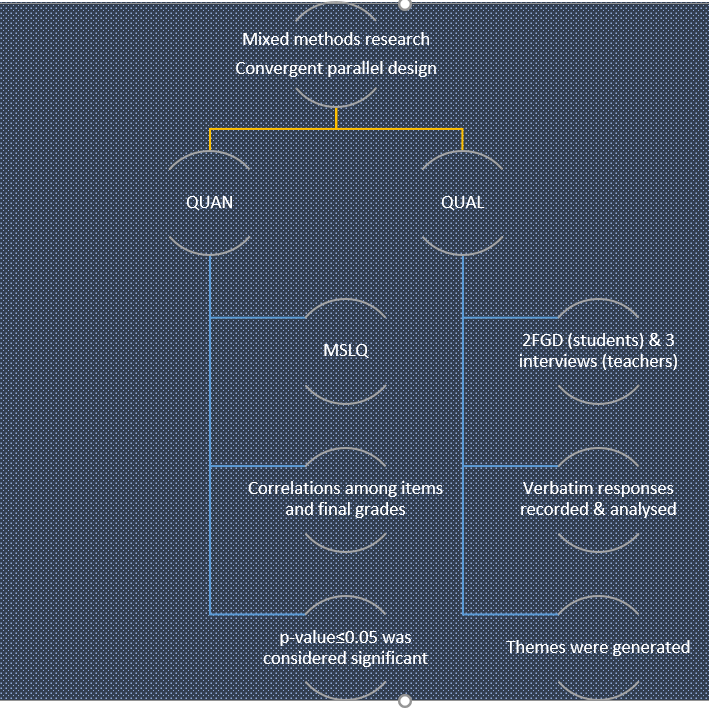
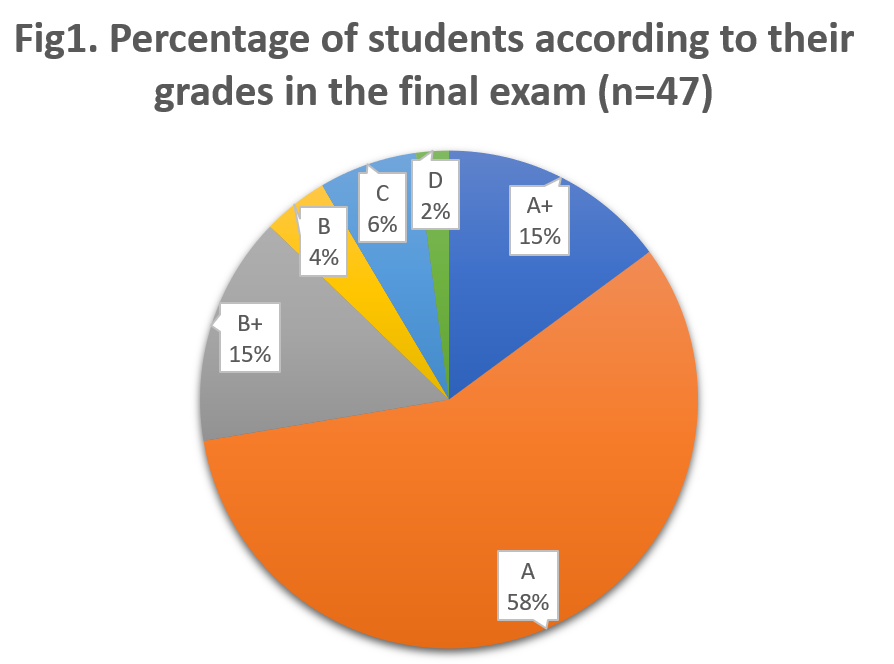
Table1. Corellation of different strategies with final grades of students
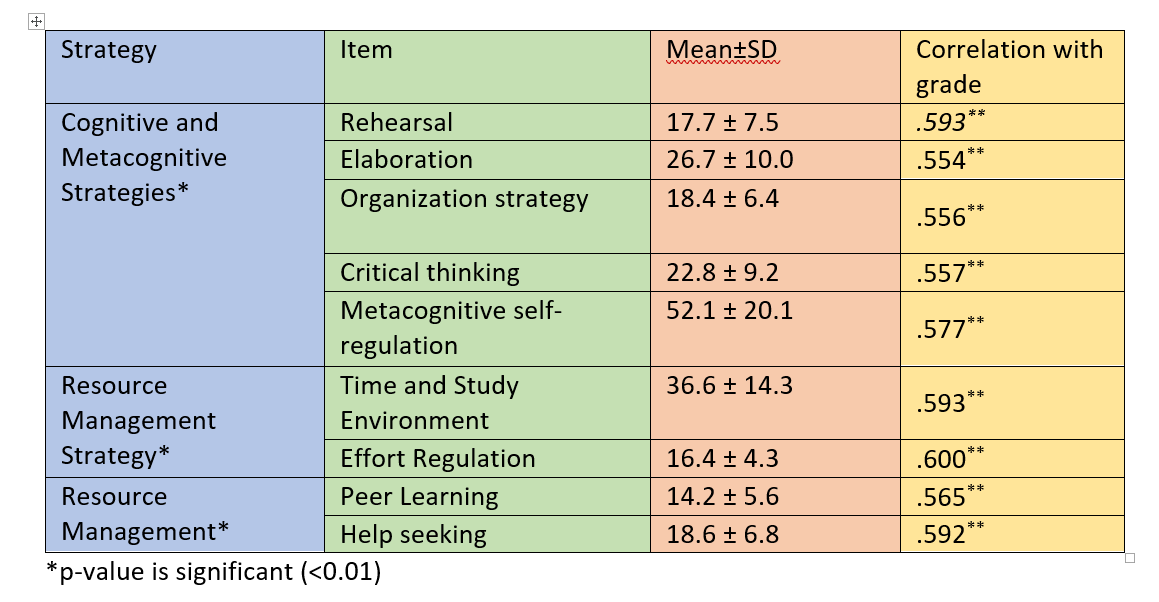
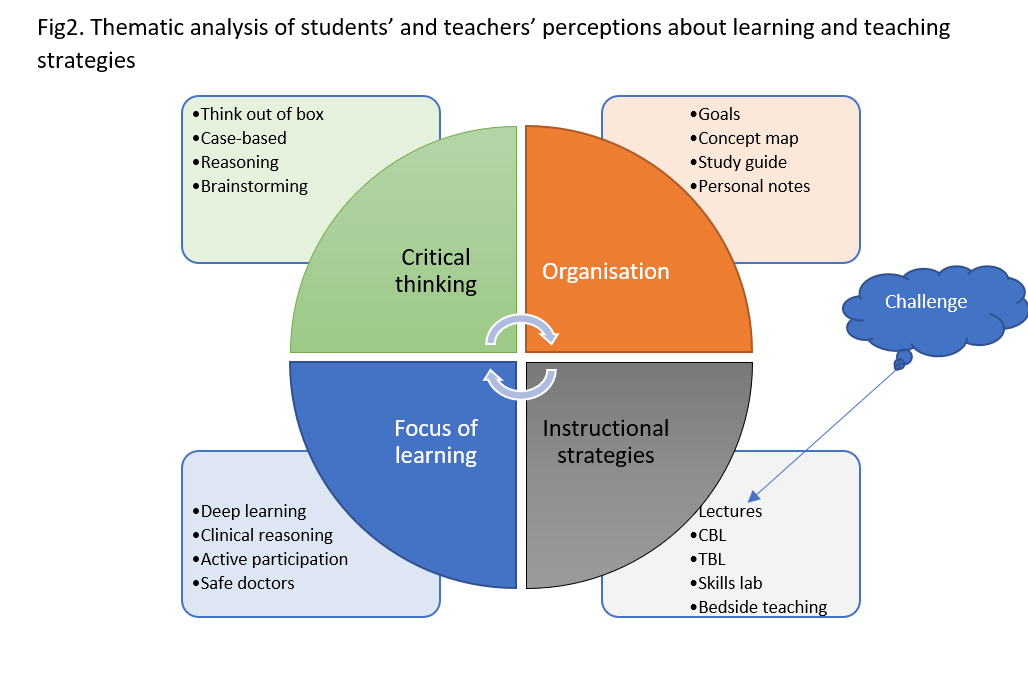
This study shows that high achievers use more metacognitive strategies. Students and teachers favour critical thinking, deep learning, conceptual learning, active learning and goals-oriented learning. Quantitative and qualitative databases converge and persistent, though some differences are observed. Different studies support the use of appropriate learning strategies for better learning of students e.g. high achievers, in a study, use deep learning strategies and concept map. One verbatim of student in our study, “I learned the whole topic as mind map" supports the same idea.There is strong relationship between self-efficacy and certain learning strategies.
Critical thinking and active learning strategies are important findings in the study, which is supported by literature. Remarks of one student, "My course, my responsibility" indicates importance of students' involvement in their learning process. So, it is concluded that active participation of students is imperative in their learning process, and efforts should be focused on fostering critical thinking and deep learning strategies for better learning of students.
While developing curriculum for undergraduate medical students, diverge learning strategies should be kept in mind. The focus should be to enhance deep learning and critical thinking, and it is a challenge for faculty how to integrate these strategies in the curriculum. Students should be part of curriculum planning and development.
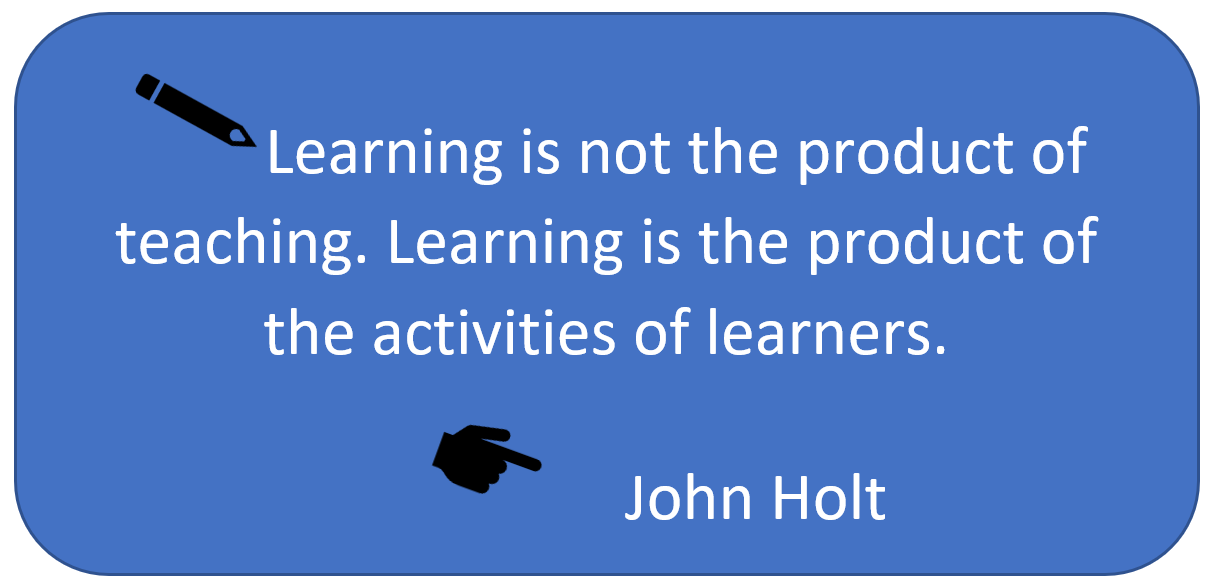
I acknowledge Prof Mukhtiar Baig and Prof Shahid Shamim for their support during the research.
- Schmeck RR, editor. Learning strategies and learning styles. Springer Science & Business Media; 2013 Nov 11.
- Dent J, Harden RM, Hunt D. A practical guide for medical teachers. Elsevier Health Sciences; 2017 Apr 26.
- West C, Kurz T, Smith S, Graham L. Are study strategies related to medical licensing exam performance? Int J Med Educ. 2014;5:199.
- Saeid N, Mehrabi M. Effectiveness of Teaching Cognitive and Metacognitive Strategies on Strengthen their, Student Self-Directed Learning Readiness and Self Efficacy. Interdisciplinary Journal of Virtual Learning in Medical Sciences (IJVLMS). 2013 Dec 15;4(3):29-39.
- Credé M, Phillips LA. A meta-analytic review of the Motivated Strategies for Learning Questionnaire. Learn Individ Differ. 2011;21(4):337–46.
- Khan IA. An Analysis of Learning Barriers: The Saudi Arabian Context. International Education Studies. 2011 Feb;4(1):242-7.Abdulghani HM, Al-Drees AA, Khalil MS, Ahmad F, Ponnamperuma GG, Amin Z. What factors determine academic achievement in high achieving undergraduate medical students? A qualitative study. Med Teach. 2014;36(sup1):S43–8.
- Creswell JW. Research design: Qualitative, quantitative, and mixed methods approaches. Sage publications; 2013 Mar 14.
- Tabatabaei SS, Ahadi H, Bahrami H, Khamesan A. The Effects of Motivated Strategies for Learning Questionnaire (MSLQ) on Students’ Cognitive and Meta-Cognitive Skills. NeuroQuantology. 2017;15(2).
 Send Email
Send Email